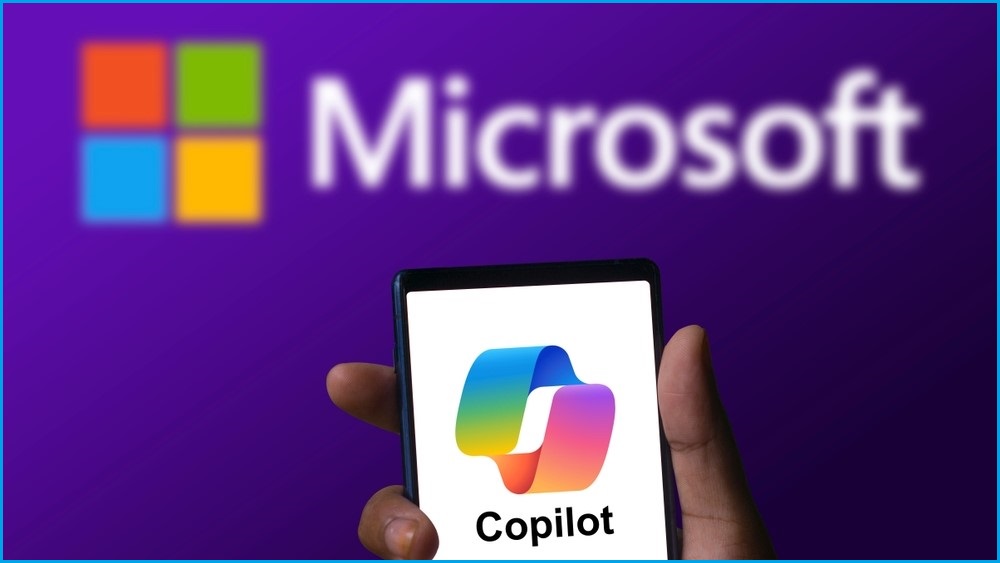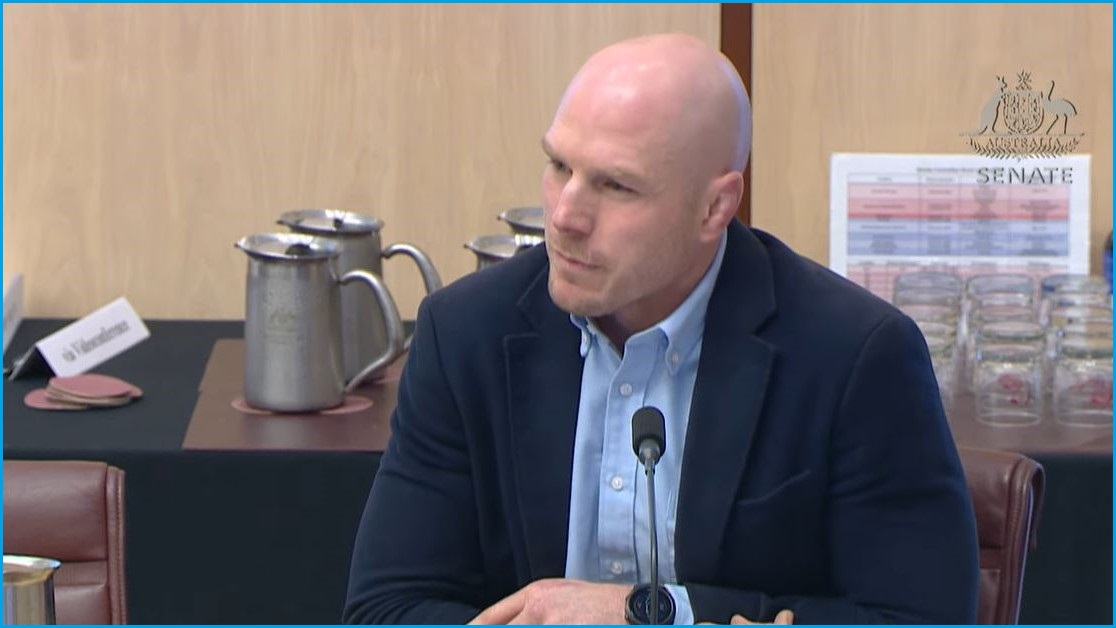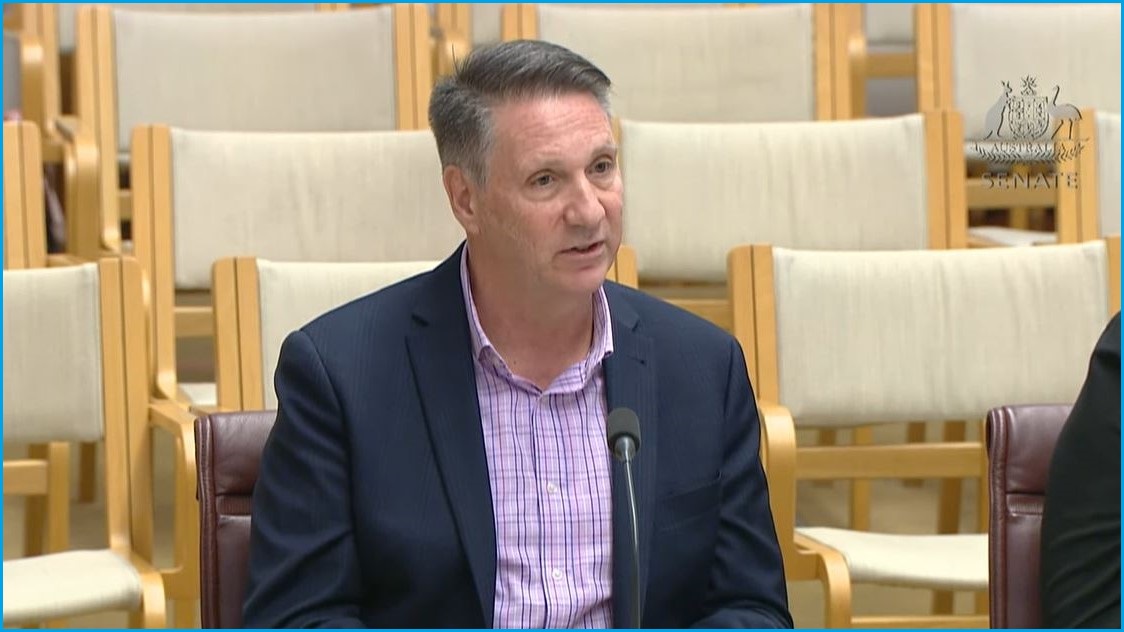The federal government’s Digital Transformation Agency (DTA) has defended signing up to a discounted trial of Microsoft’s artificial intelligence service Copilot, arguing it will not lock out Australian companies from also securing AI deals with the government.
The six-month trial, announced in November 2023 at a meeting between Prime Minister Anthony Albanese and Microsoft CEO Satya Nadella, came just weeks after the US tech giant pledged $5 billion to build digital infrastructure in Australia.
In May this year, Canberra AI company Trellis Data told a senate committee it was days away from signing a deal with the government when it was allegedly scrapped in favour of the Microsoft Copilot agreement.
During a Friday hearing of the Select Committee on Adopting AI, DTA chief executive Chris Fechner said the Microsoft deal would not “lock in” the public service to using the company's products in future.
He said the agency was also “unable” to confirm the existence of any contract with a Canberra AI company.
“We had an offer from Microsoft to have a introductory trial with a discounted price for a small cohort to demonstrate [Copilot's] proof of capability, of which there was about 7,500 people that participated,” Fechner said.
He said the “negotiated” discount secured by the government was 15 per cent, but did not provide a total value for the trial — which cost more than $1.2 million.
Fechner said Copilot was attractive to the Australian Public Service (APS) because it was built to extend the functions of Microsoft products which APS already held around 180,000 licences for, such as Teams, Word, PowerPoint, and Excel.
“Our full enrolment of that Microsoft Office Suite made it the most effective way,” he said.
‘Not all conversations lead to contracts'
Independent Senator David Pocock raised concerns about how technology companies without the size and existing contracts of those such as Microsoft could compete, and referred to Trellis Data without explicitly naming it.
“We've heard through this committee about an Australian AI company who had done all the terms and conditions of a deal with a department to provide a trial,” he said.
“Copilot got announced, and they said, ‘I know we're meant to sign that deal today, but sorry, we've gone with Copilot.’
“What does that say to Australian so companies in this space?”
Independent Senator David Pocock raised concerns over government technology contracts being awarded to Big Tech companies. Image: Parliament House / YouTube
Fechner said while his office had tried to find details about that supposed contract, it had been “unable to identify whether that contract was actually officially put out”.
He said the government carried out a Request for Information (RFI) with the local AI market prior to signing the Microsoft Copilot deal.
“There are lots of discovery conversations that happen with the marketplace across the Australian Public Service,” he said.
“Not all of them lead to tender arrangements, not all of them lead to contracts.”
Trellis Data declined to comment, but its CEO previously stated the government’s decision to go with Microsoft had a “direct impact” on the company’s operations.
Fechner said the DTA was already in discussions with Microsoft about what future licencing agreements with the Commonwealth would look like if they were to include Copilot.
Senator Pocock said it sounded like “a pretty sweet deal” for Microsoft “to offer a 15 per cent discount on 7,000 [licences] and potentially go APS-wide".
Government ‘investigating’ other alternatives
Fechner said he believed there would be “more opportunities to investigate broader market responses” to government AI procurement now that the Copilot trial had finished and was being reviewed.
He also said the capability of Copilot was “definitely substitutable”.
“There are definitely open source alternatives, or other commercial alternatives that can add Copilot functionality to different features, and we are definitely investigating those," he said.
Digital Transformation Agency CEO Chris Fechner said the agency was in discussions with Microsoft over potential future licensing agreements. Image: Parliament House / YouTube
Fechner said the fact the government’s Copilot deal was announced shortly after Microsoft revealed its $5 billion investment in Australia did not mean the two deals were linked.
“It was announced concurrently, but they weren't dependent upon each other,” he said.
While the Copilot trial finished at the end of June and was now being reviewed, Fechner said Microsoft had continued to offer a discount for some agencies to keep using the service.
“The DTA is now leading an evaluation of the productivity, quality, capabilities of Copilot,” he said.
“We will actually have that done in the next couple of months, by the end of September, and the intent is we will actually make that report available so that agencies can make their own decisions on how they may or may not wish to utilise Copilot and what other alternatives they may want to seek to do the functions that Copilot does.”
Fechner noted that while Microsoft’s Copilot was integrated into products already used by the APS, the software relied on large language models created by ChatGPT-creators OpenAI, of which Microsoft is a major investor.
When Microsoft was asked about the government’s Copilot deal during the same committee hearing on Friday, its corporate vice president Steven Worrall said the Copilot trial “was an appropriate part” of its existing contract with the government.
Earlier in the hearing, Google claimed it did not dominate Australia’s search engine market, despite receiving more than 90 per cent of local search requests.












